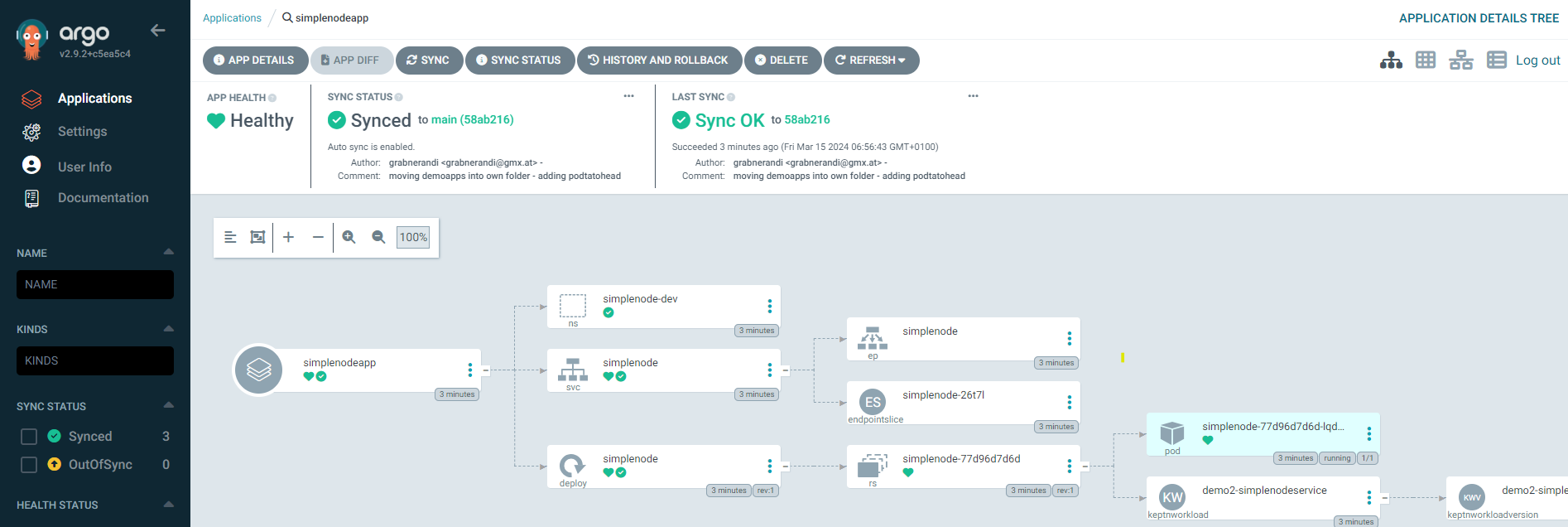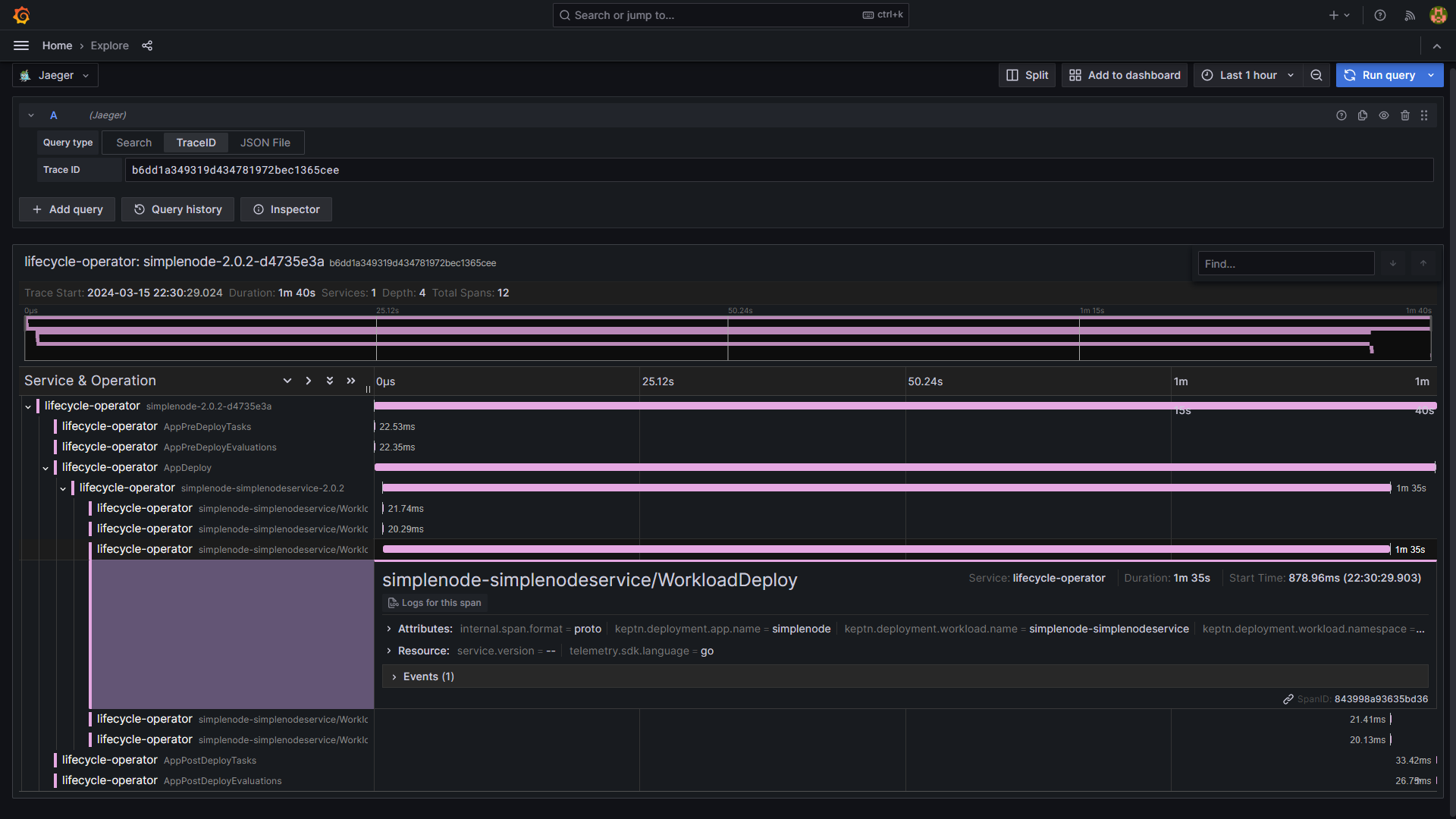This is the companion demo for the ArgoCon 2024 talk Why is it taking that long? Shining the light on Application Syncs in Argo with Keptn
Watch the recording of the talk on the CNCF YouTube Channel
The goal of this demo is to show how Keptn creates OpenTelemetry traces and prometheus metrics to provide observability driven answers to questions like:
- How many applications and workloads are getting deployed?
- How long do deployments take and whats the success rate?
- Whats the root cause of slow or failing deployments?
This demo installs ArgoCD which then installs a set of platform tools such as OpenTelemetry, Jaeger, Grafana, Keptn and some demo apps to demo the observability insights Keptn provides. Here is a screenshot showing one of the apps shown in ArgoCD and the corresponding OpenTelemetry trace that gives insights into what the K8s Pod Scheduler did to fulfill the deployment request!
ArgoCD showing Podtatehead application
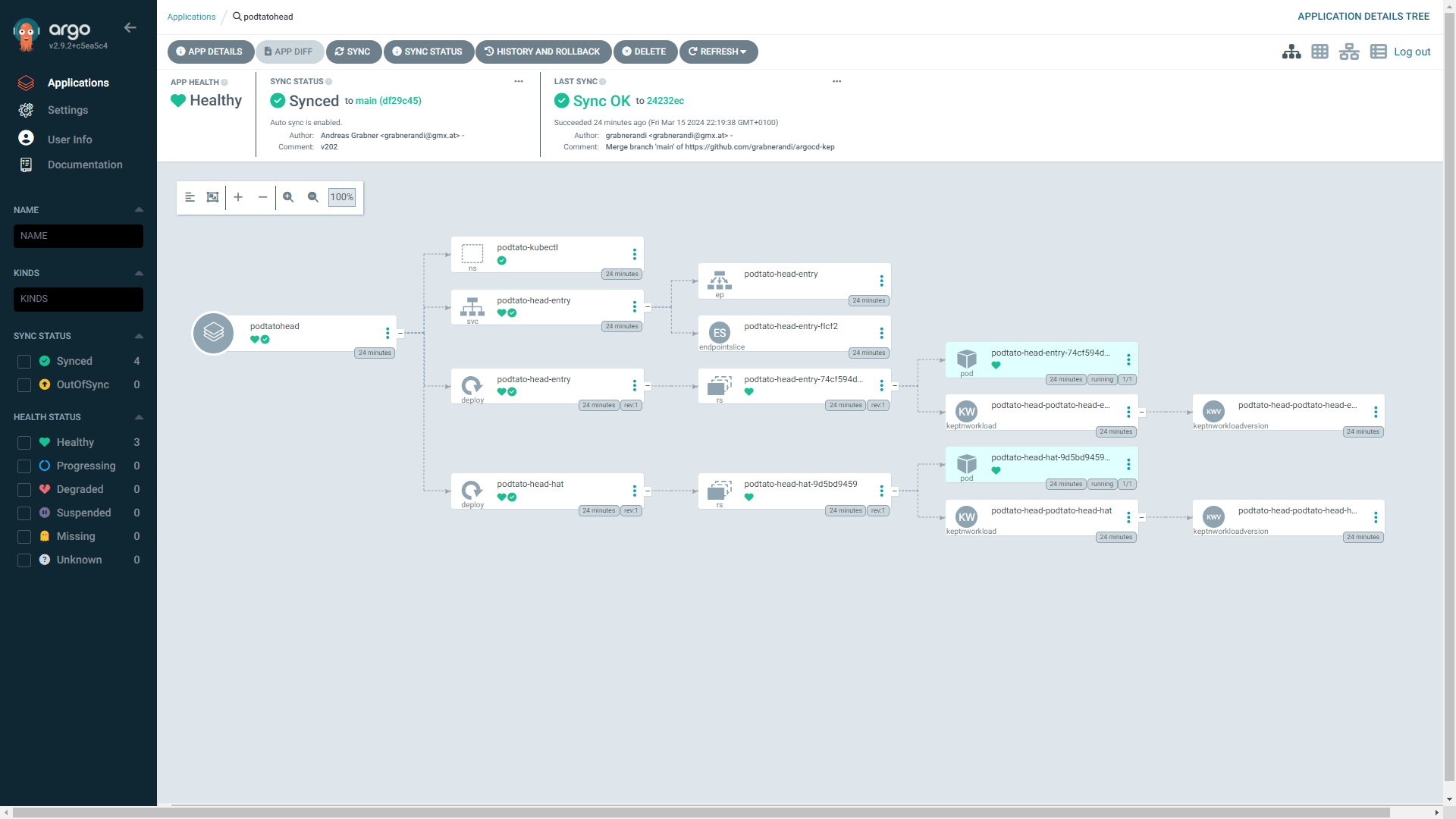
Jaeger OpenTelemetry Trace in Grafana for the same application
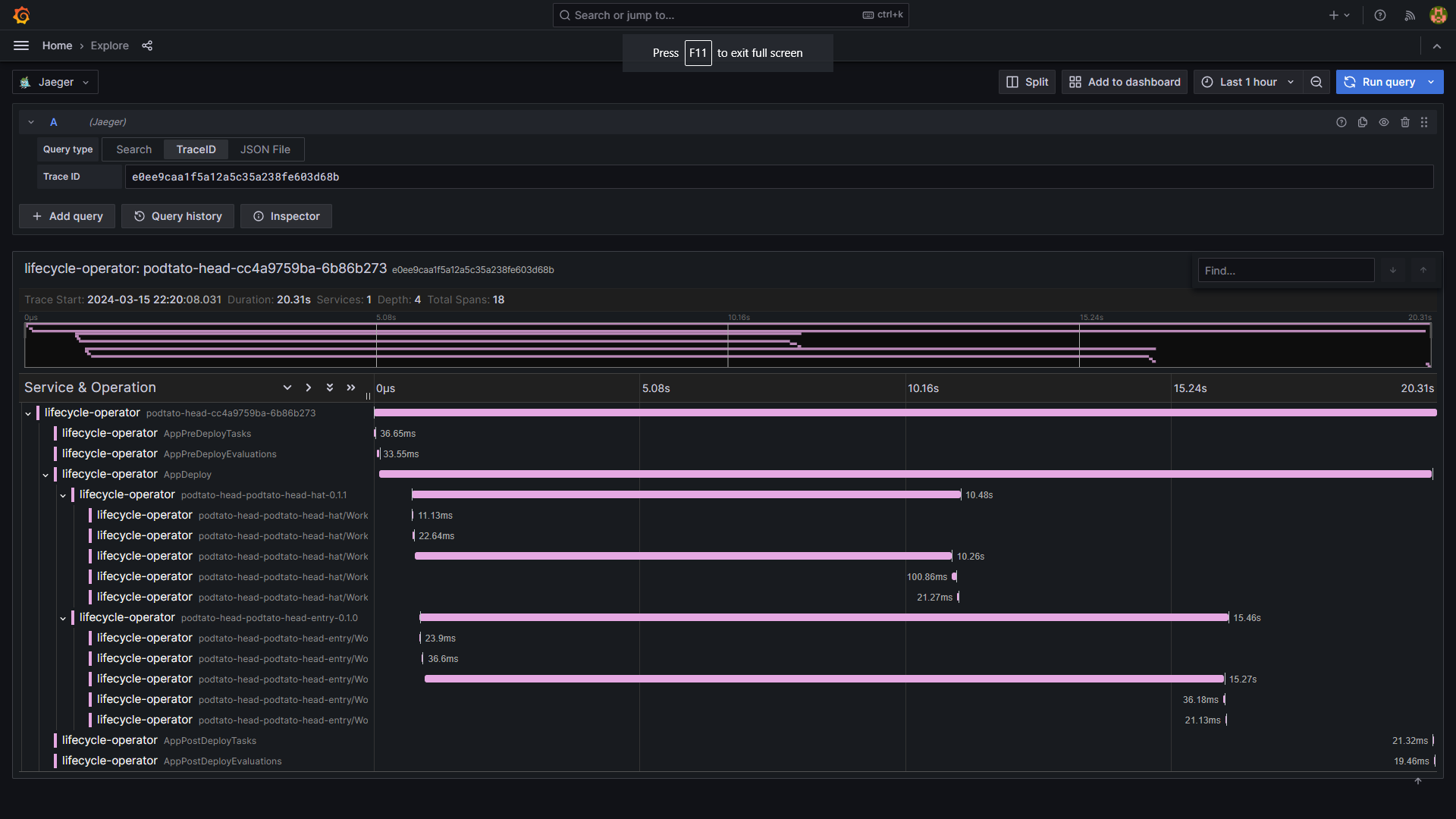
Grafana dashboard with some deployment metrics and access to traces
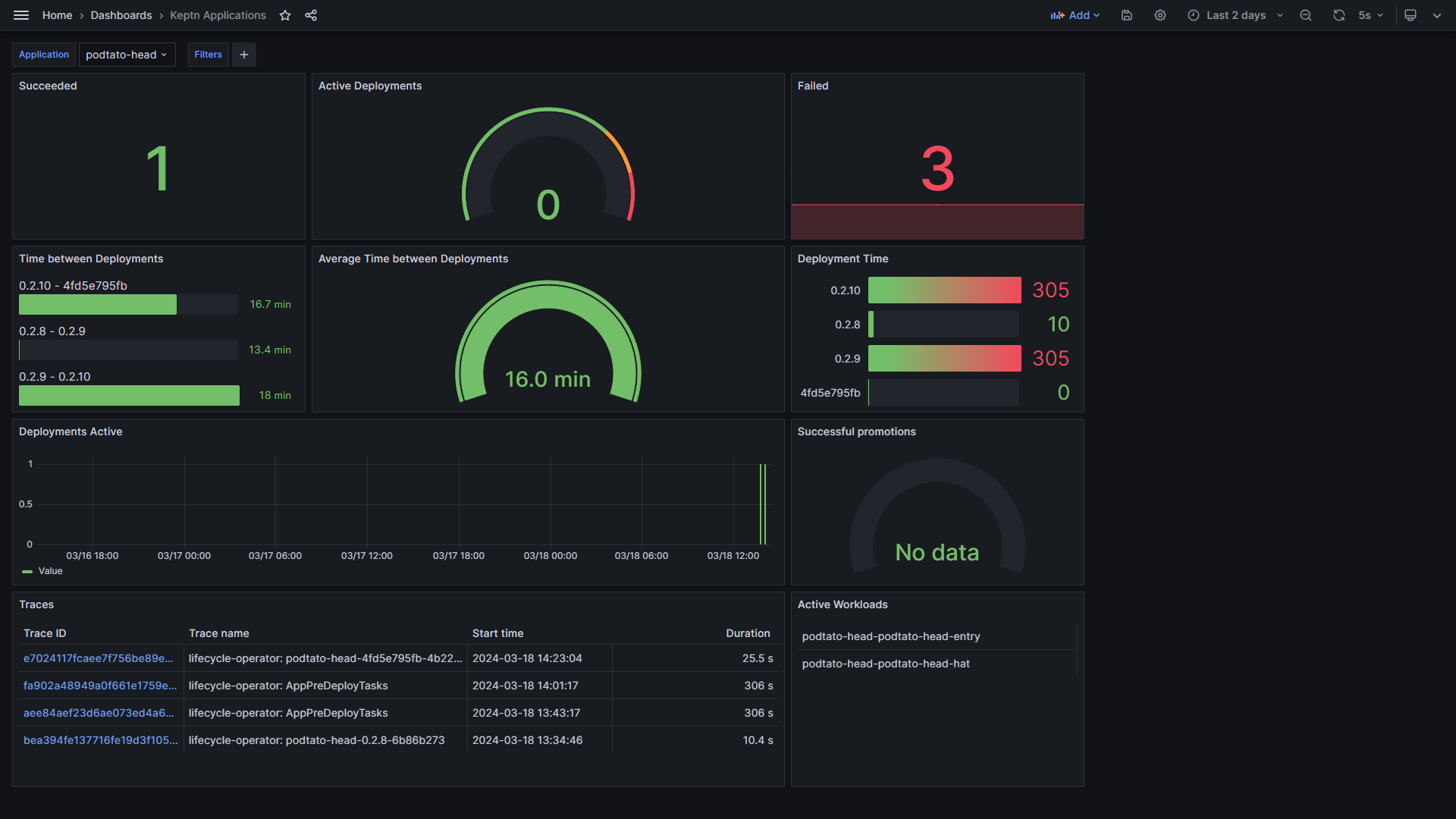
kind create cluster --config kind-cluster.yaml
kubectl apply -k argocd
kubectl apply -f apps.yaml
Once everything is up & running you can deploy the extra demo apps
kubectl apply -f simplenodeapp.yaml
kubectl apply -f podtatoheadapp.yaml
This example includes a devcontainer configuration, allowing you to automatically create an environment for testing using the VSCode Dev Containers extension or GitHub Codespaces.
Navigate to https://localhost:8080/ on the machine with the kind cluster running.
Get the generated admin password.
argocd admin initial-password -n argocd
Or:
cat ~/argo-cd-admin-password.txt
Or:
ARGOCDPWD=$(kubectl -n argocd get secret argocd-initial-admin-secret -o jsonpath="{.data.password}" | base64 -d)
echo $ARGOCDPWD
Navigate to https://localhost:8082/ on the machine with the kind cluster running (the dev container also forwards this port).
The username and password are admin.
kind delete cluster --name argocd-keptn
Keptn has created a resource called a KeptnApp to track your application. The name of which is based on the part-of label.
$ kubectl -n demo get keptnapp
NAME AGE
keptndemoapp 3m20s
Keptn also creates a new application version every time you increment the version label.
The PHASE will change as the deployment progresses. A successful deployment is shown as PHASE=Completed
$ kubectl -n demo get keptnappversion
NAME APPNAME VERSION PHASE
keptndemoapp-0.0.1-6b86b273 keptndemoapp 0.0.1 Completed
keptndemoapp-0.0.2-d4735e3a keptndemoapp 0.0.2 Completed
Keptn is generating DORA metrics and OpenTelemetry traces for your deployments.
These metrics are exposed via the Keptn lifecycle operator /metrics endpoint on port 2222.
To see these raw metrics:
SERVICE=$(kubectl get svc -l control-plane=lifecycle-operator -A -ojsonpath="{.items[0].metadata.name}")
kubectl -n keptn-lifecycle-toolkit-system port-forward svc/$SERVICE 8081:2222
Access metrics in Prometheus format on http://localhost:8081/metrics
Look for metrics starting with keptn_
You can deploy two additional demo applications provided by this repository Simplenode (single node.js based microservice) and Podtatohead (the sample app of TAG AppDelivery)
kubectl apply -f simplenodeapp.yaml
kubectl apply -f podtatoheadapp.yaml
